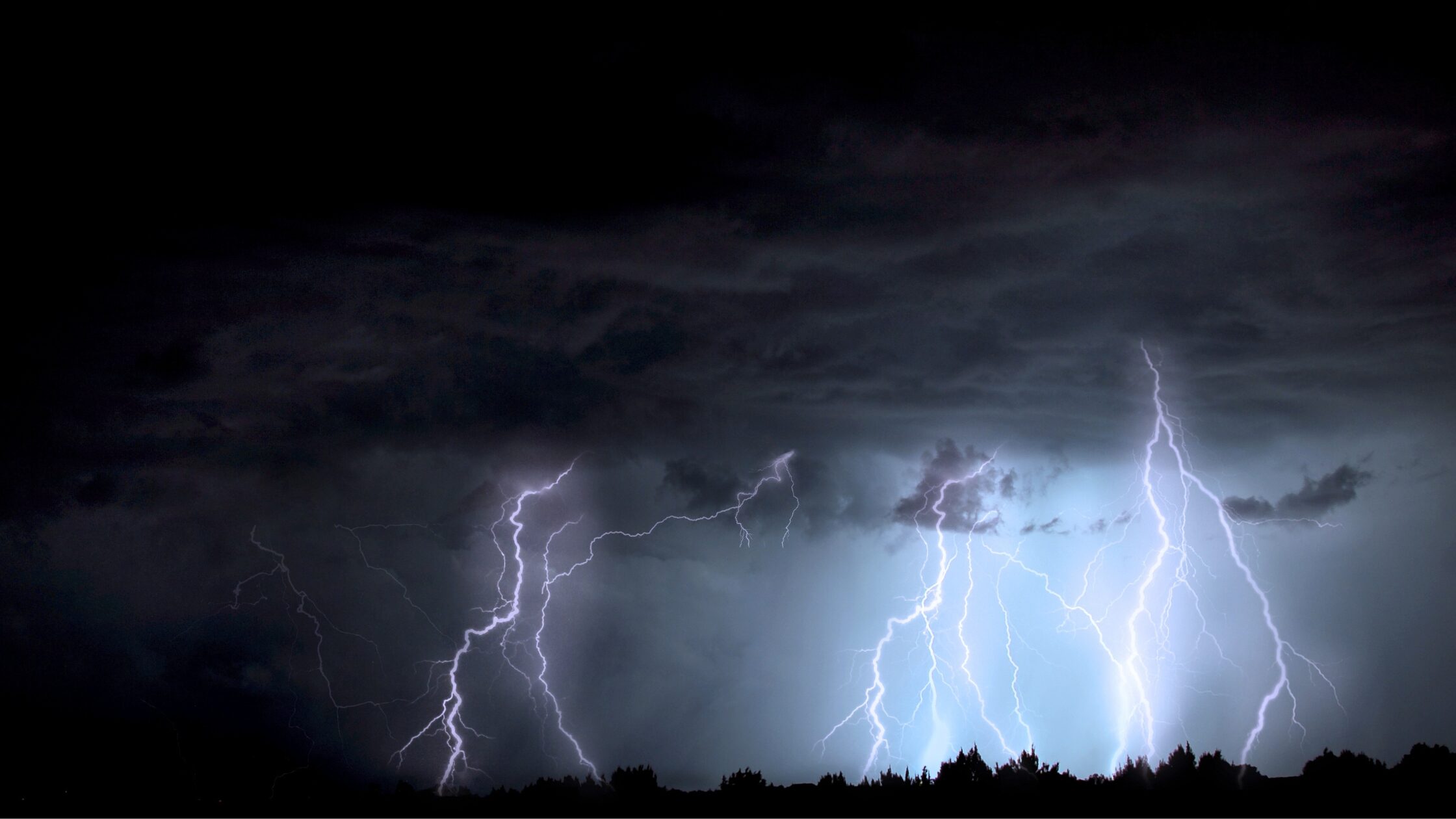Here’s a quick checklist to help you prepare for a cyclone as a visitor in Fiji:
- Stay Informed: Monitor local weather reports and updates from official sources, such as the Fiji Meteorological Service and local authorities, to stay informed about cyclone warnings, advisories, and evacuation notices.
- Emergency Supplies: Stock up on essential emergency supplies, including bottled water, non-perishable food items, flashlights, batteries, portable radio, first aid kit, medications, and personal hygiene products.
- Secure Your Accommodation: Ensure that your accommodation is cyclone-proof and secure. Follow any instructions or guidelines provided by hotel staff or management regarding safety procedures and evacuation plans.
- Charge Devices: Fully charge your electronic devices, such as mobile phones, laptops, and power banks, in case of power outages during the cyclone.
- Stay Indoors: Stay indoors and avoid unnecessary travel or outdoor activities during cyclone conditions. Seek shelter in a sturdy building or designated evacuation center if necessary.
- Secure Loose Objects: Secure or bring indoors any loose outdoor objects, such as furniture, garden tools, and decorations, to prevent them from becoming projectiles during high winds.
- Stay Away from Windows: Avoid standing near windows or glass doors during the cyclone, as they may shatter due to strong winds or flying debris. Stay in an interior room or hallway away from windows and doors.
- Follow Instructions: Follow any instructions or evacuation orders issued by local authorities, hotel staff, or emergency personnel. Be prepared to evacuate to a safe location if directed to do so.
- Stay Calm and Be Patient: Remain calm, stay indoors, and be patient during the cyclone. Keep communication lines open with family members, friends, or hotel staff to ensure everyone’s safety and well-being.
- After the Cyclone: Once the cyclone has passed, exercise caution when venturing outside and avoid flooded areas, downed power lines, and debris. Check in with local authorities or hotel staff for updates and instructions on post-cyclone recovery efforts.
By following these preparedness tips and staying informed, you can help ensure your safety and well-being during a cyclone while visiting Fiji.
Understanding Cyclones in Fiji
Cyclones, which are the same as hurricanes or typhoons in different parts of the world, are rotating storm systems with a low-pressure centre, which often bring about severe weather conditions. In Fiji, these systems can escalate into tropical cyclones, with some escalating further into severe tropical cyclones.
Categories of Cyclones in Fiji:
- Category 1: Winds 88-125 km/h (gale force winds)
- Category 2: Winds 125-164 km/h
- Category 3: Winds 165-224 km/h
- Category 4: Winds 225-279 km/h
- Category 5: Winds greater than 279 km/h (extreme tropical cyclone)
During a cyclone, you can expect gale force winds, heavy rain or even torrential rain. The cyclone season in Fiji typically runs from November through April. However, cyclones can happen out of season, though it’s rare.
Notable cyclones that have hit Fiji include Cyclone Winston in 2016, Cyclone Harold in 2020, and Cyclone Yasa in 2020. These events caused significant devastation due to their high wind speeds and heavy rainfall.
The path of a cyclone can be unpredictable, and meteorologists in the South Pacific monitor these storm systems closely to provide forecasts. The information is used to prepare and warn residents of potential impacts. It’s essential to stay informed and follow local advisories during the cyclone season for your safety.
Before the Cyclone
Preparing for a cyclone in Fiji is crucial, especially between November and April, when the risk is highest. Staying informed, safeguarding your home and property, and knowing your community’s evacuation plans are key steps to take.
Monitoring Weather Updates
Stay vigilant by regularly checking the Fiji Meteorological Service for updates. Cyclone watches and warnings will be issued when a system develops, providing you with a five-day forecast to stay ahead of the situation.
Emergency Preparedness
Create an emergency kit that includes enough food and water to last at least 72 hours. Make sure to include other essentials like a first-aid kit, a flashlight with extra batteries, and a battery-powered radio to keep up with the latest advisories even during power outages.
Home and Property Safety
Inspect your home, especially if you’re in high-risk areas like Viti Levu, Yasawa, or Mamanuca. Secure loose items that could become projectiles and trim trees to minimise the risk of damage. Install shutters or protective measures for windows and doors to further shield your property from strong winds.
Community Awareness and Evacuation Plans
Familiarise yourself with the local evacuation centres and routes as early as possible. The National Disaster Management Office and other local authorities provide training and advice to help the population and villages prepare for potential evacuations. Keep this information accessible, and ensure your whole family knows the plan.
Travel Considerations
If you’re planning to travel to or around Fiji during cyclone season, check with your accommodation providers about their cyclone procedures. Ensure you have comprehensive travel insurance that covers natural disasters. Tourism operators, especially in areas like Nadi and Suva, are well-versed in the protocols during cyclones and can offer guidance.
By taking these proactive steps before a cyclone, you can better protect yourself, your loved ones, and your property from potential harm.
During the Cyclone
When a cyclone hits, your immediate priority is ensuring personal safety and minimising property damage. Staying informed and prepared will help you to navigate through the event more safely.
Securing Personal Safety
Ensure you and your family are in a secure location, such as a sturdy building or a community evacuation centre. If in your home, choose a room with the fewest windows, and stay away from glass that can shatter due to strong winds or flying debris.
Staying Informed
Keep a battery-powered radio on hand to receive live updates from the Fiji Meteorological Service. Cyclone warnings will be issued regularly, providing guidance on the severe weather’s progression and any evacuation orders.
Minimising Property Damage
Before the cyclone, move loose outdoor items inside to prevent them from becoming flying debris, and board up your windows. During the cyclone, if flooding occurs, move to higher ground or an upper level of your shelter.
Handling Emergencies
Prepare an emergency kit with essentials like a first aid kit, flashlights, and spare batteries. If you’re trapped or in need of urgent help, contact the Fiji Red Cross or the National Disaster Management Office.
Looking Out for Health Risks
During cyclones, risks of waterborne diseases can increase due to heavy rainfall and flooding. Use boiled or bottled water for drinking and hygiene purposes. Keep a lookout for updates regarding health advisories from local authorities.
After the Cyclone
Once the cyclone has passed, your safety and the process of normalisation become the priorities. Swiftly evaluating the damage and working collectively with your community are crucial steps to take towards a path of recovery.
Assessing the Impact
Firstly, check your immediate surroundings to ensure it’s safe to leave your shelter. Look out for downed power lines, unstable structures, and debris. Damage to infrastructure like roads, bridges, and schools, especially in Fiji’s major islands, Viti Levu and Vanua Levu, can give you an indication of the cyclone’s severity. The capital, Suva, may also experience significant effects due to its population density.
Engaging in Community Response
In the aftermath, communities in affected areas, including the Yasawa and Mamanuca island groups, often band together. Participate in community-led efforts to clear paths and provide assistance. Local organisations, like Fiji Red Cross, play a pivotal role in these initiatives, focusing on immediate needs such as clean water and food distribution.
Recovery and Rebuilding
Rebuilding Fijian villages can be a prolonged endeavour. International aid often supports this process, particularly when dealing with extensive destruction, similar to what was experienced after Cyclone Winston. Restoration of public services in areas like the education sector is critical to returning to normalcy.
Government and Aid Assistance
The National Disaster Management Office (NDMO) and directives from the Prime Minister, Frank Bainimarama, coordinate rehabilitation efforts, including the rebuilding of hospitals, roads, and affected infrastructure. The government’s timely updates will guide you on available assistance and recovery plans.
Health and Wellbeing
Post-cyclone, attention to your health is paramount. Avoid contaminated water to prevent diseases. If you require medical care, note that facilities may be compromised, and seek updates on operational healthcare centres. Flooding can lead to an increase in waterborne diseases, so stay informed and take precautions as advised by authorities.
Practical Tips for Travellers
Embarking on a journey to Fiji, especially during the cyclone season from November to April, requires vigilance and preparation. Stay safe and enjoy your trip by taking proactive steps.
Making Informed Decisions
When planning your trip to Fiji, it’s crucial to be aware of the regions like Viti Levu, Yasawa, and Mamanuca, which can be impacted by cyclones. Monitor weather reports regularly, particularly if your visit falls between November and April, when cyclones are more likely. Organisations like Fiji Meteorological Service provide updates and five-day forecasts to help you make informed decisions.
- Subscribe to local weather services.
- Stay in touch with your accommodation, be it a resort in Nadi or a guesthouse in Suva, for their safety guidelines.
Dealing with Disruptions
Cyclones can lead to sudden changes in your travel plans, affecting flights and local transportation. Be prepared for potential delays and alterations in schedules.
| Type of Disruption | What to Do |
|---|---|
| Flight cancellations | Contact the airline immediately for rebooking options. |
| Closed tourist sites | Check for alternate activities with your resort or local tourism offices. |
- Have local emergency numbers on hand.
Securing Travel Investments
Travel insurance is indispensable for safeguarding your trip investments. Ensure your policy covers disruptions due to severe weather.
- Verify that cyclone-related cancellations for flights and accommodations are included.
- Keep important documents and receipts handy for insurance claims.
By staying informed, anticipating travel disruptions, and securing your travel investments, your visit to Fiji can be a memorable and safe experience.





